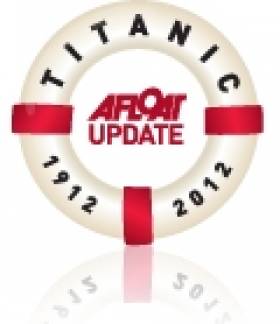Displaying items by tag: Simon Calder
Titanic Belfast 'Is Designed to Impress'
#TITANIC - The Independent's Simon Calder reports on his special preview of Titanic Belfast, the £97 million (€116.3 million) tribute to the ill-fated ship on Belfast Lough.
"For once, the term 'of Titanic proportions' applies literally." he writes. "The top of the five-storey building is exactly as high as the tip of Titanic when the transatlantic liner was completed at the Harland and Wolff yard a century ago."
The monument is not only intended as a tribute to the tragedy, but also as a beacon to attract tourists to the "open, friendly city" of Belfast that has emerged after decades of the Troubles.
The travel writer compares the city's plans to the renaissance of Bilbao in northern Spain - like Belfast, a former shipbuilding centre damaged by terrorism that has become "a vibrant, elegant city that stands alongside Amsterdam, Barcelona and Berlin" thanks in part to the bold architecture of the Guggenheim museum.
Calder adds: "Almost every aspect of Titanic Belfast chimes with the city beyond the structure's metal jacket and big windows. And as with Titanic herself, the fitting out is designed to impress."
As previously reported on Afloat.ie, Titanic Belfast will be one of the largest employers in Northern Ireland’s tourism industry, as well as one of the North’s largest recruiters, when it opens later this month.
The Independent has much more on the story HERE.





























































